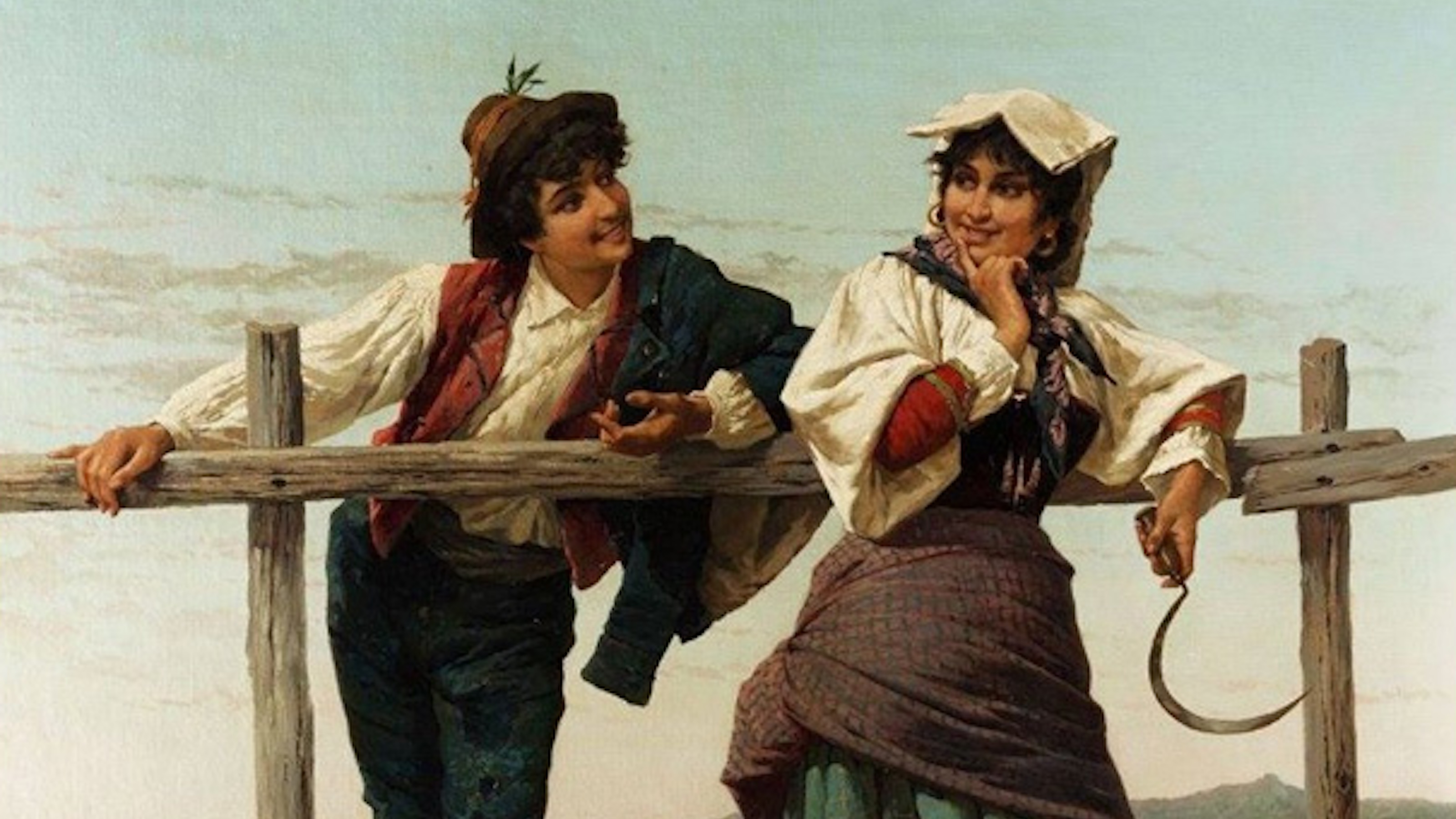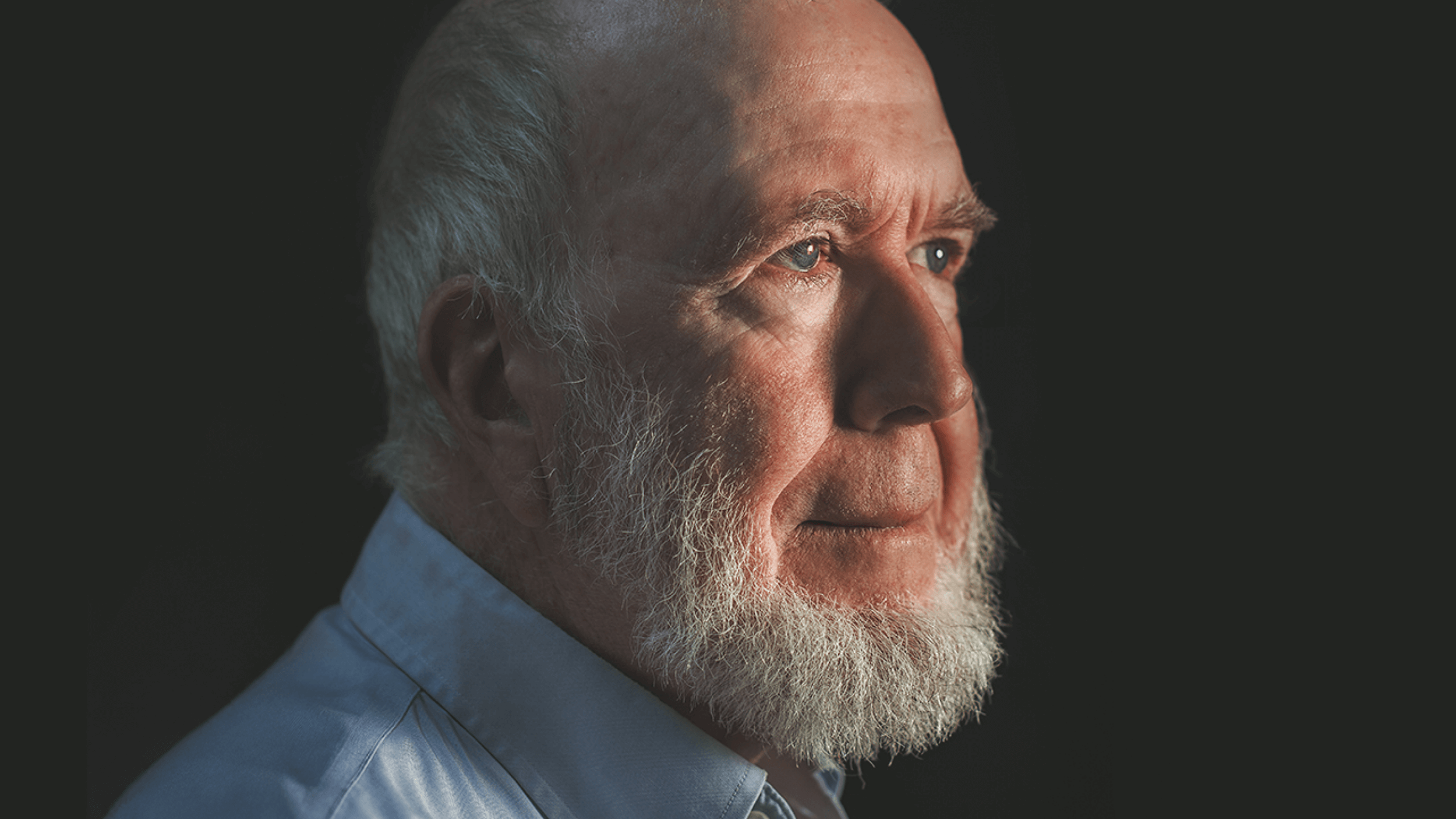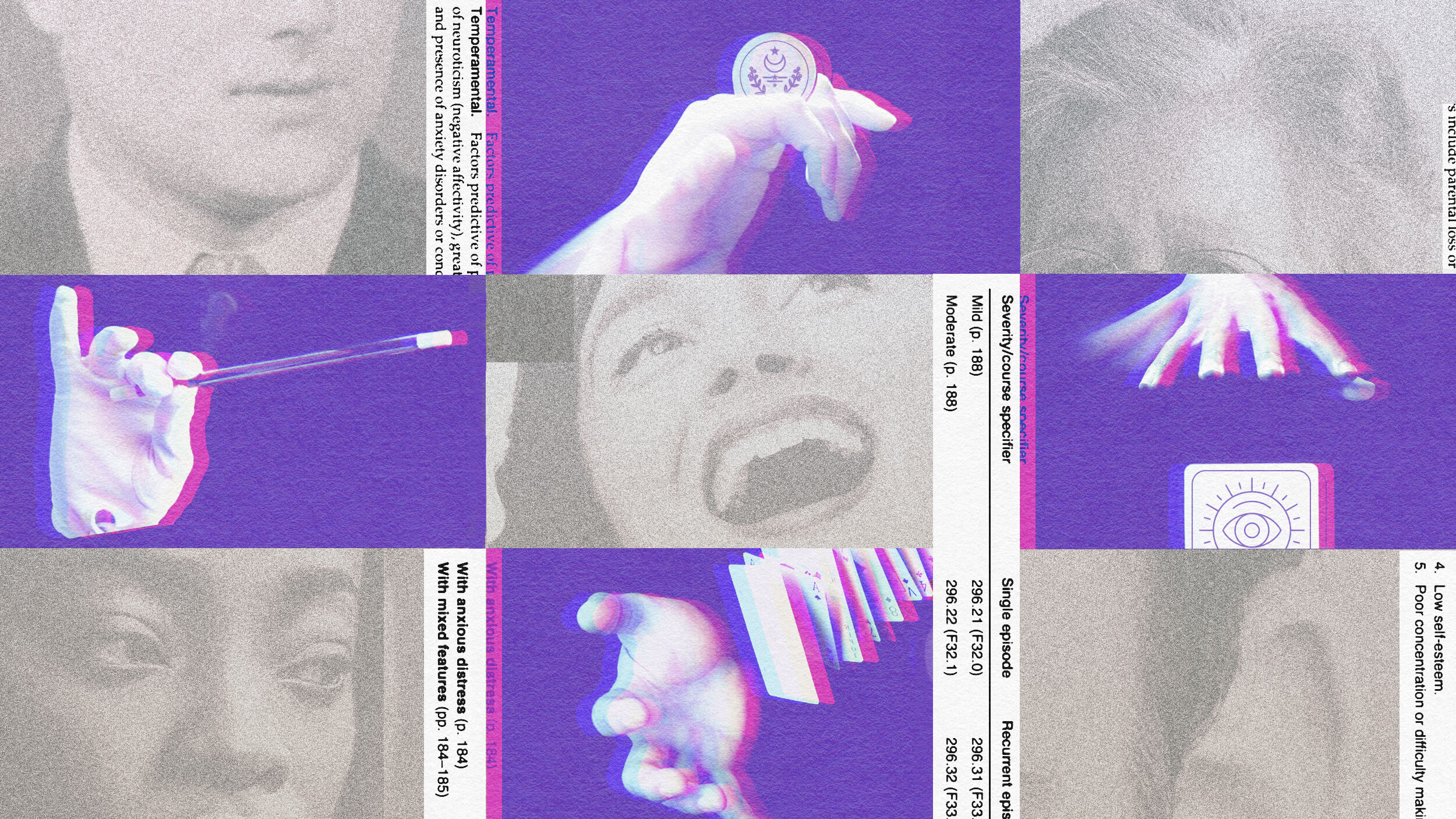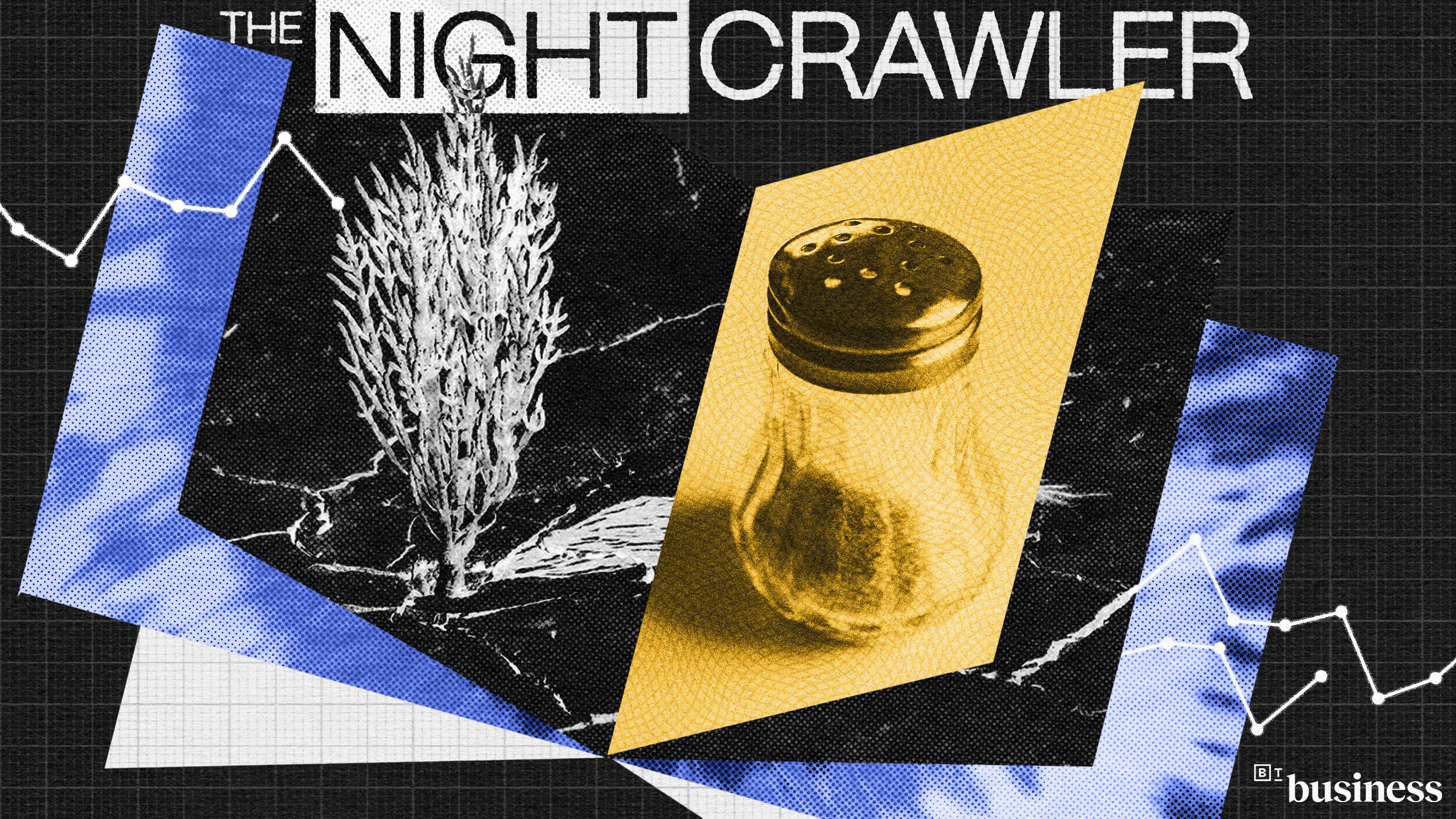A conversation with the singer, songwriter, and musician.
Josh Ritter:rnWell, I started playing music when I was really little. I started playing violin and I playedrnthat for a really long time, 13 years. rnAnd it never felt like music to me really, until I—I never got thatrnfeeling that I was playing music until I was putting on some of my parents' oldrnrecords. They had a record playerrnand they had all kinds of vinyl. rnAnd we lived far out of town, so you’d come home from school and notrnhave anything to do... except throw rocks. rnAnd I uncovered this record player one day and my brother helped me plugrnit in and I put on—they had all kinds of records, but the record that reallyrnstruck me was “Nashville Skyline,” Bob Dylan record with Johnny Cash. It was the first song; it was “GirlrnFrom the North Country.” And Irndidn’t grow up around grunge, or punk, or anything like that, but that feelingrnthat that song gave me really made me—I think that’s the same feeling that Irnhad, was like this was suddenly kind of a door opened and I could go through itrnmyself.
rnrnQuestion: Why did you quit neuroscience in college to study music?
Josh Ritter: Irnguess it really, both of my parents are scientists and the talk around therndinner table was always about science and it was about the brain and it wasrnabout whatever they were working on. rnAnd they would talk to each other and my brother and I kind of grew uprnin this world where "serotonin" was somebody down the block, you know. And to me, it was never a question thatrnI would go into science. I tookrnaptitude tests and it said that I could be an undertaker or a plumber, orrnsomebody who worked in the woods. rnAnd that was it, forestry. rnAnd so I thought "That’s ridiculous. I’m going to be a scientist."
And then my chemistry teacher in high school said, “You’rernnot going to be a scientist.” AndrnI said, that’s totally ridiculous. rnI’m going to be a scientist. rnThat’s—what else is there. rnAnd I went to school for science and about halfway through I realized,rnman, I’m just not going to be a scientist. I’m not going to—it’s not happening. I was really in love with scientists. I was in love with the people whornstudied science and was in love with the people who came up with the ideas andrnwith their lives and how they got interested in those things. And what were their breakthroughrnmoments, you know. Like how didrnWatson and Crick discover, like, the double helix... or these beautiful moments,rnthey always seem like incredible things.
rnrnAnd as I started to write songs, I started to realize that Irnhad those moments myself. Andrneverybody who’s an artist, like a scientist is an artist; an artist is anybodyrnwho has those moments and realizes them and so that’s how I kind of came to thatrnrealization. I was studying for anrnorganic chemistry test and I just—and it was a final and I just knew it wasn’trnlooking good. And I left thernscience library and I called my parents and I said, “I’m not going to be arnscientist.” I’m going to be a musician. And they were great about it. They said, you know, we figured yournwere never going to be a scientist.
rnrnQuestion: What advicernwould you give to someone learning guitar?
rnrnJosh Ritter: Well, I think one of the great things about rock 'n' roll and guitar and the idea of America is that we all have our own unique voices, and I think that that’s something that we have very distinctively since we’ve become a country, that each one of us, our own opinions, are just as important as the next guy's down the street. And that’s thernsame as guitar. Guitar is not, like,rnan instrument that is stuck in a canon, or stuck in a particular form. Blues is this continually evolvingrnthing. Blues and jazz and rock and country... and to me, I guess coming out of playing violin, where you had to playrnthose things perfectly, you had to play the notes written on the page just asrnthey were written, or you were play wrong. It was such a freeing thing. And I’ve always embraced the idea that my own guitar playingrnis very distinctively my own, and whether it’s good or not is beside thernpoint. It’s just my own playingrnand it evolves, and in some ways it gets better, but it’s always justrnmine. And I always thought thatrnwas cool.
rnrnSo, I guess my advice in that way is to never—don’t holdrnyourself to whatever is on the page. rnAnd I feel that way about whenever you are playing someone else’s songs;rnmake it your own by playing it the way you would.
rnrnQuestion: What’s thernsecret to successful songwriting?
rnrnJosh Ritter: Irnthink it’s not necessarily like the writing the song part, it’s the willingnessrnto like just survive because it’s like, it’s really—to me I don’t know what I’drndo if I wasn’t doing this. And Irnfeel that it’s perseverance and it’s also self-confidence, and it’s like veryrnfew things in my life I have confidence about like I have aboutrnsongwriting. And that doesn’t meanrnthat the song is necessarily good, it means that I think it’s good, and I feelrnlike I’ve come—and I’m willing to let the songs that aren’t very good go by thernwayside because I know I’ll have a song that I do feel that kind of "Eureka!"rnfeeling about.
rnrnAnd so, from what I’ve seen in 10 years of playing music,rnit’s a complete mystery to me what somebody else is going to like. You know, the song that I think is justrna great song, or friends of mine who have like a great song, and never get outrnof their bedroom with it. That hasrnnever made sense to me. And also,rnyou know, people who come out and are successful that I think, I don’trnunderstand why. There’s no way to knowrnthose things. So, I think thatrneverybody starts out playing music because they love it and if you’re lucky yournget the chance to keep on doing it because you love it, but I think thatrnthat’s... I have no idea why. It’s arnmystery.
rnrnQuestion: What mistakesrnor clichés do you try to avoid when writing songs?
rnrnJosh Ritter:rnWell, I think—I have lots of like, tics, that I think that—or lots of thingsrnthat bug me. I sort of think aboutrnit, it’s kind of like fashion. Arnsong has to feel good when you’re singing it. It has to feel like somebody will put on a suit. You have people that you know that putrnon clothes and they look effortlessly good in them and it’s like, there was nornwork. And whether or not that’srnthe case, the fact is that you have to feel comfortable singing what you’rernsinging and so some things that make me feel uncomfortable are rhymes that seemrna little too obvious. Rhymes thatrnseem a little too—rhymes that are overused: “girl/world,” girl/world syndrome,rn“knife/strife,” “shelf/myself,” you know, I stay away from all of those. I don’t like autobiographicalrnsongs. I don’t think thatrnthey’re—and I don’t like autobiographical singing. I don’t want to think about the person singing the song onrnstage. Like I feel like the songrnis your chance to like—like a short story, or anything is a chance to liverninside a character that’s been given to you. You are being given this character and then you can liverninside it, not a chance to see inside somebody else’s private life. You know, I don’t like that, and Irndon’t think it leads to very original songwriting. You know? Those are some things that bug me. And good songs, they’re just things thatrnyou can sing in the car, on the way home without a guitar, that you can playrnyourself and learn how to do.
rnrnQuestion: Did yournconsciously turn away from political songwriting after “The Animal Years”?
rnrnJosh Ritter: WellrnI guess I just didn’t think it was, like I thought about it a lot like arnsurgery, you know, like there was something there that—I remember I was, withrn“Animal Years” I had just started—when I was writing that record, I had justrnstarted running, and I was running and running—I was back in Idaho and I wouldrngo on these runs down these long gravel roads, and I remember sometimes justrngetting so angry about nothing specific. rnJust free floating anger, and I felt like it was growing in me, and Irnfelt like “Animal Years” was about just cutting that out and getting it out. And then once that was out, I feltrnlike—I felt pretty expunged and purged of it. So, I didn’t think that was, it wasn’t like I was trying torngo out there and teach anybody a lesson, I wanted to go out and say what Irnfelt... which I felt “Animal Years” was kind of about religion and whatever arnreligion is getting taken away from people, and used for kind of cynicalrnends. And I thought that—but afterrnthat I had no desire to tell people what to think. That’s one of my big pet peeves. Like most political songwriting I would say is just aboutrnteaching people like they’re children or like they had never had no experiencernwith the world on their own. Peoplernbelieve what they believe for a reason and I just think that music is the wrongrnplace to kind of teach somebody. rnEspecially because I don’t like artists who are—you’re a musician, you’rernnot a political scientist, or... you know.
rnrnSo, and then—going from that to “Conquest” just felt like itrnwasn’t so much that I wanted to stop writing political I just didn’t feel therndrive to do that at that time, you know. rnAnd it was just really fun, like “Conquest” was a lot about—I wasrnworking with Sam Kassirer, my piano player, and my producer for this record asrnwell. And it was like I just didrnan experiment and it turned into this great fun game of recording, which was arnhold new discovery, you know, getting to work with somebody who really got whatrnI wanted.
rnrnQuestion: What did yournset out to achieve in your new album that you hadn’t before?
rnrnJosh Ritter: Irnthink in a lot of ways, this was a real defining record for me, making it. I guess the major one is the fact thatrnI turn 33 and I have six records out. rnAnd at the end of my last record, really I was touring a lot, andrntouring and touring and I had a chance to do a lot of stuff. And kind of in the back of my mindrnwhile I was doing it, I was thinking, "What’s going to happen now? What am I going to write about, how amrnI going to keep from being just—how am I going to keep this new? How am I going to keep making newrnmusic?" And I was worried about it and it’s just, I wrote, and wrote and nothingrnseemed right. It felt like—it justrnfelt like I was repeating myself. rnIt’s like the Springsteen song, you know, “Same old story, same oldrnact.” And I just always felt thatrnI fought to get a career where I could play music and I could do that for thernrest of my life. And I felt likernwhen I got to that point, I suddenly felt like, "Do I have anything else tornsay?" It’s sort of like, you’rerncampaigning for an office and once you get there, you have no idea what torndo.
rnrnAnd I think that that’s dangerous and I feel like I’ve metrnpeople who have decided that they’ve got to that point and then they’re justrngoing to play their songs that people know, their hits, and that’s it; and theyrnstop developing. And I didn’t wantrnthat to happen, so I spent a lot of time just kind of chewing on my fingers andrnthen trying to make sure that, like, I could write some songs that actually meantrnsomething new. And out of that came eventually, out of a lot of working andrnstrife, life strife, I started working on some songs, one of which was calledrn“The Curse,” and it started as just the idea of a mummy’s curse and what wouldrnhappen if the mummy and the archeologist fell in love. And it was like—you only need one songrnusually to get you going, you know, one song to make you feel like you could dornthis again and you’re not as bad as you think you are at the moment, you know. And once that happens, the world kind of opens up.
rnrnQuestion:Do your international fans respond to your music differently?
rn
Josh Ritter:rnWell, I think it’s kind of hard to say, but one thing I do feel like I do noticernis that on a good night, it feels the same anywhere. And it has nothing to do with language. It’s like kind of amazing that you canrngo, especially for somebody like me who’s pretty wordy in a song, I’m alwaysrnamazed that even in places like Italy where people shouldn’t be able tornunderstand, and probably don’t understand everything I’m saying, they are justrnas—on a good night they are just as happy. And that’s funny. rnAnd I think that that’s really cool and it’s been a big surprise tornme. But I guess that it shouldrnalways feel the same to me. Itrnshould feel kind of sweaty and happy at the end of a show.
rnrnQuestion: How has thernrelationship between musicians and fans changed in the Internet age?
rnrnJosh Ritter: Well, it’s 24 hours a day now, you know? In a lot of ways, it’s amazing, you can getrnthis—if you have a song and you want people to hear it, there’s no way tornkeep—the world can hear it in the space of time it takes to upload it. You know? There’s so many people out there with music who want to bernheard and who deserve to be heard. rnI think that with an audience like—I started with an audience and it’srnbeen growing over the last 10 years, so I’d say that with me, I’ve been luckyrnthat I have an audience that I can keep up with in a number of ways. It’s also a matter of how much do yournreally want to know about your favorite artist, or even your third favoriternartist? You don’t want to hearrnabout it too much. You want to gornto their show, you want to spend the night going to a show, maybe go get somerndinner beforehand, or you want to listen to like three or four songs on arnrecord. And you don’t need to hearrnfrom them every day about what’s going on. So, there’s that line to tread.
rnrnSame with like Twitter and all this—Twitter is anotherrnthing. You know, you don’t need tornhave this constant connection all the time. I really think that playing a show is... a good show feelsrnlike the length of time you stay at a party. You know when to go and you know when to leave, and likerndon’t overstay your welcome. Yournknow? So I think that carries overrnin the digital world too. It’srnconstantly evolving, but it’s—the end is still the same. It’s just being there a little bit.
rnrnQuestion: Where does folkrnmusic stand now as compared to the ‘60s?
rnrnJosh Ritter:rnWell, it’s, I think of folk music as anything you can sing in the car on thernway home. That’s always been whatrnI think of because that’s—so whether you’re coming back from a Fleetwood Macrnreunion concert, or whether you’ve got Mississippi John Herd on, or you know,rnyou’ve got Gillian Welch, it doesn’t matter. Folk is such a marketing term, you know. And it’s not—it’s so hard to quantifyrnor classify anymore. I don’trnknow. I mean, I always thoughtrnthat what I was doing was rock n’ roll with lots of words because I get thernfeeling when I’m playing that I’m not a part of any sort of—I feel like whatrnI’m playing is rock n’ roll, although I don’t know why. And there’s no real reason to say that,rnbut I feel that the quietest music can be rock n’ roll—Beethoven is rock andrnroll. So, you now, it’s hard tornsay.
rnrnBut I would say that folk music is in the same boat withrneverybody now. You know, it’s likernin a world where you can go on Facebook and hear millions of people playingrnmillions and millions of songs, and it’s hard to say what the community ofrnmusic is anymore.
rnrnQuestion: Are you unhappyrnwith the turbulence of the music industry?
rnrnJosh Ritter: It’srngoing through lots of upheaval I guess, but it’s also funny, the people thatrnare screaming the most about it are the ones who have the microphones. You know, if you are a major recordrnlabel—and I’ve been a part of several—it must be awful because you have... you’rernstill working on stuff that you love hopefully you love music and you got intornit for that reason, and you’re losing the ability to do what you’re supposed torndo, which is sell music.
rnrnI mean, I could complain about that myself, but I don’trnbecause it’s just, I think it’s not worth it and it’s also, you know, that’srnthe way it is. Millions of peoplernstill listen to the music, they may not pay for it, but they’re stillrnlistening. And hopefully, likernthere is still a way that they will keep coming to the shows. The shows are—I feel like, in the lastrnfour or five years, the shows have gotten incredible. I’ve started to see so many more shows that I love because Irnthought the people were professional. rnThey’re doing it because they love it, and the show has to be goodrnbecause that’s the only way now. rnPeople hear a song and it’s like an advertisement for the show, yournknow.
rnrnPlus I think that it’s incredible still, you can be a partrnof somebody’s life for 3 ½ to 4 minutes. rnSo, I could—you know, it’s useless to complain about that stuff.
rnrnQuestion: Which artistsrnon the current music scene deserve greater visibility?
rnrnJosh Ritter:rnYeah, well that’s—I mean visible or invisible, I’d say like there’s still somernpeople that are doing it like incredibly well. You know, I think that Glen Hansard, both in The Frames andrnThe Swell Season, is one of the most amazing live shows I have ever seen. I think that my very impressive wife,rnDawn Landes, is amazing. And Irnlove seeing—Ray LaMontagne is incredible. rnI love seeing him play. rnGillian Welch is proof that you can do something with two people that’srnpretty life changing. And thenrnthere’s just so, so much music happening right now that it’s hard to name themrnall.
rnrnQuestion: What made yournwant to write a novel?
rnrnJosh Ritter: Irnreally have wanted to do it for a long time and I’ve started and I’ve worked onrna number of different things that were all just terrible. But I got this idea when I was workingrnon “So Runs the World Away,” and I had this idea as I started writing the song, and it wasrnway too long a song. It was aboutrna guy who has an angel who tells him to do things. Not necessarily a guardianrnangel, but it was a long song, and it was pretty overwrought and I realized itrnneeded a lot more subtlety, more subtlety that I can get into a song. And so Irnstared writing and I wrote 1,000 words a day for 50 or 55 days and then I hadrnthis big rough draft. And thenrnafter that, it was just, you know, keep on going over it and over it. And it really is, it’s like you’rernwriting a really long song. Everyrnword kind of matters and if it doesn’t feel right you’ve got to work until itrndoes. So, yeah, I’m very excited. It’s coming out next year.
rnrnQuestion: Which isrnharder, writing a novel or making an album?
rnrnJosh Ritter:rnWell, putting together an album is a group effort, you know? Luckily you have a number of peoplernthat can help and everything from helping you to record it to—I write a songrnand I bring it to my band and I say, let’s like open this up and fiddle aroundrnwith it, and I’m so lucky to have that, people to help record it. But with a novel, it’s you’re kind ofrngoing across the page alone and there’s been times when that’s been reallyrntremendous. It’s like running;rnit’s like a solitary thing. Andrnother times, it’s just really terrifying.
rnrn[Josh Ritter plays]
rnrnJosh Ritter: Thisrnsong is called “Change of Time,” and it’s from “So Runs the World Away.”
rnrnrnrn
I had a dream last night; I dreamt that I was swimming
rnrnAnd the stars up above, directionless and drifting
rnrnAnd somewhere in the dark were the sirens and the thunder
rnrnAnd around me as I swam, the drifters who’d gone under
rnrnTime love, time love, time love.
rnrnrnrn
Time love, time love, time love, it’s only a change ofrntime.
rnrnrnrn
I had a dream last night, and rusting far below me
rnrnBattered hulls and broken hardships
rnrnLeviathan and lonely
rnrnI was thirsty so I drank, and though it was salt water
rnrnThere’s something about the way it tasted so familiar
rnrnTime love, time love, time love
rnrnrnrn
Time love, time love, time love, it’s only a change ofrntime.
rnrnrnrn
The black clouds I’m hanging, this anchor I’m dragging
rnrnThe sails of memory rip open in silence
rnrnWe cut through the lowlands, all hands through the saltlands
rnrnThe whitecaps of memory, confusing and violent.
rnrnrnrn
I had a dream last night, when I opened my eyes
rnrnYour shoulder blade, your spine were shorelines in thernmoonlight
rnrnNew worlds for the weak, new lands for the living
rnrnI could make it if I tried; I closed my eyes, I kept onrnswimming
rnrnTime love, time love, time love, it’s only a change of timernlove
rnrnrnrn
Time love, time love, it’s only a change of time love,
rnrnTime, time love it’s only a change of time love, time love,
rnrnIt’s only a change of love—seas that carry me wherever I go
rnrnRough seas, they carry me wherever I go,
rnrnRough seas they carry me wherever I go,
rnrnRough seas, they carry me wherever I go.
Recorded April 5, 2010
Interviewed by Austin rnAllen





